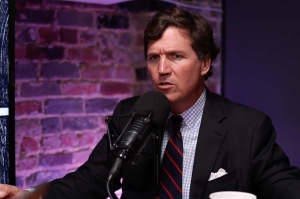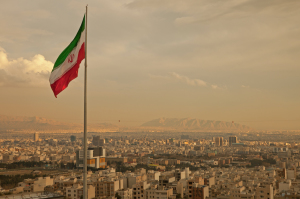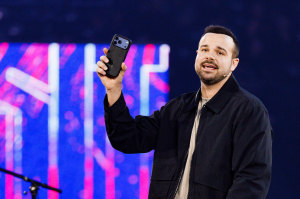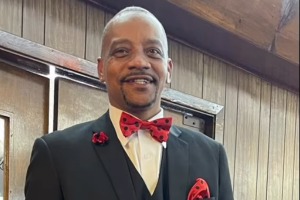The Lord's Prayer Is Not Exclusively Christian, Attorney Tells Judge
A lawsuit against the Sussex County Council in Delaware alleges that by reciting the Lord's Prayer before meetings, the council “has publicly aligned itself with a single faith” in violation of the First Amendment's establishment clause. During a hearing in U.S. District Court on Wednesday, however, the county's attorney argued that the prayer isn't necessarily just a Christian one.
Attorney J. Scott Shannon told U.S. District Court Judge Leonard P. Stark that although the Lord's Prayer is mostly associated with Christianity it was first spoken by a Jew, Delaware Online reports.
"[Jesus] was not offering a Christian prayer in the Christian tradition because no Christian tradition existed," Shannon said. He also argued that the prayer, which contains no specific mention of Jesus Christ in it, contains language that is fitting for other faiths, and is not required to be “inoffensive to all” or “all-inclusive,that ” anyways.
According to court documents, the Lord's Prayer has been the invocation of choice at Sussex County Council meetings since 1971.
Alex Luchenitser, an attorney for Americans United for Separation of Church and State, spoke on behalf of the plaintiffs in the lawsuit – four Delaware residents who feel that the saying of the Lord's Prayer at Sussex County Council meetings is offensive.
Luchenitser argued that the opening words of the prayer – “Our Father” – indicate that it is a Christian prayer because it implicitly refers to Jesus.
"That's a Christian way of referring to Jesus," Luchenitser said, according to Delaware Online. "This is not something reasonable people disagree over."
The attorney for the plaintiffs also argued that even non-Christians recognize the Lord's Prayer as a Christian prayer. Citizens who don't say the prayer with the council, Luchenitser argued, could be “outed as nonbelievers” and might be treated differently by other citizens or by the council as a result.
Shannon told The Christian Post on Thursday that the council says the Lord's Prayer before they “gavel the meeting to order.” According to Brad Dacus, president of the Pacific Justice Institute in Sacramento, Calif., the council should be legally allowed to pray as long as they do so before the meeting begins.
“If the prayer is conducted before the meeting actually starts, there really shouldn't be an issue here because we're talking about individuals...[Just] because they're city councilmen [doesn't mean they] shed their first amendment rights of free speech or free exercise of religion,” Dacus told CP.
“Their only limitation is when they're acting in their capacity as agents of the government, and that capacity starts when that meeting begins or when they address themselves as representing the city.”
Judge Stark decided not to set a timetable for when he would give his ruling. Delaware Online reports that during the hearing Stark asked questions about the content of the Lord's Prayer, which could weigh heavily on his decision.
"I'm afraid you all might have brought me a difficult case because there is no reference to Jesus or Allah," Stark said.



























